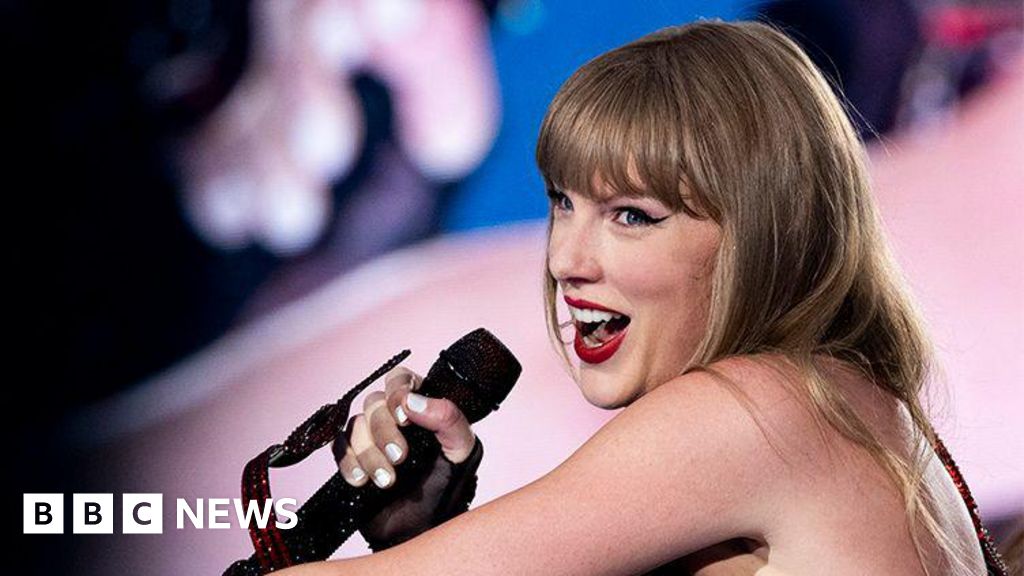By Manish Pandey, BBC Newsbeat
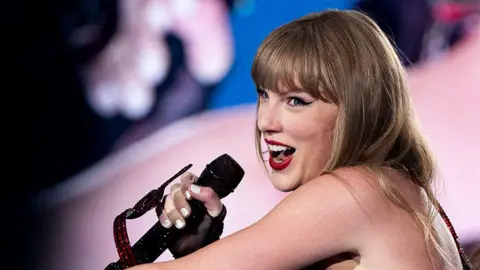 Getty Images
Getty Images“Here’s one from my new album” are six words fans would probably rather not hear at a gig.
You might think that Taylor Swift would be immune from that but, based on the reaction to her changing her setlist one year in to her worldwide Eras tour, you’d be wrong.
When she announced that she’d revamped her track selection to incorporate music from her latest double-release, The Tortured Poets Department, reviews were mixed.
Some were delighted that new tunes like Fortnight and Down Bad were in, but others were disappointed to see older songs Long Live, The Archer and The 1 cut from the record-breaking tour.
But you’re never going to please everyone, even if you’re Taylor Swift.
So how do artists go about picking a setlist?
Charli XCX, who’s just released her latest album Brat, tells BBC Newsbeat the songs she picks are very much based on how she’s feeling.
‘A fine balance’
The Von Dutch singer describes herself as “quite a selfish performer generally”.
“I’m performing because I like listening to my own music out loud,” she says.
“I’ve done the setlist for me rather than for anybody else.
“I think that’s how you grow and you show people the new ways in which you’re developing, and your new tastes.
“And playing the same songs over and over and over again is really quite boring.
“So I like to switch it up.”
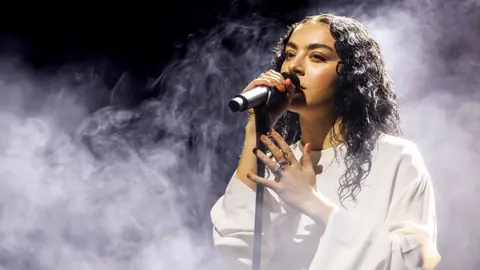 Getty Images
Getty ImagesChase & Status, who recently headlined Radio 1 Big Weekend, have released multiple albums and been putting out tracks for over 20 years.
That makes choosing your setlist tricky, as you’re potentially trying to please different generations of fans.
“I think you’re always kind of second guessing what the crowd is gonna be like,” says Saul Milton, aka Chase.
“Is it going to be fans of your older stuff or your new stuff? So it’s just making sure you don’t forget where we came from.
“But also you can’t forget that there’s young fans that maybe don’t know our old stuff.
That’s why it important to have “a nice balance,” he adds, “because it’s not just about what we want to hear”.
“We’re performing our music to people that support us. So we want to make sure they’re happy.”
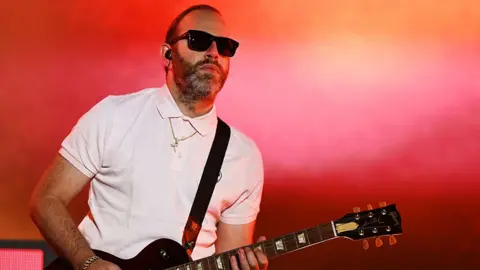
“It does baffle my head sometimes trying to decide what to do for the setlist,” says Rapper Aitch.
“I do go through it a lot. I do try to switch it up as much as I can,” he says.
But in the end, Aitch says, he and his team try to have a mix of songs which can cater to everyone.
“There’s definitely some bangers on there. But there’s also some fan favourites on there,” he says.
“We always end up making a good decision.”
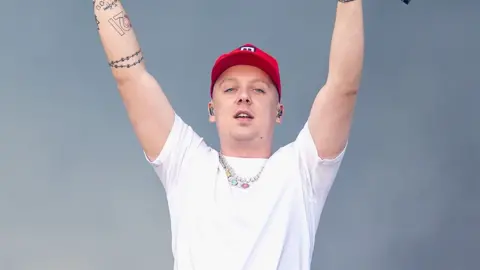 Getty Images
Getty ImagesLike Aitch, many artists have a team behind them, and tour manager Emily Holt tells Newsbeat “there has to be a fine balance” when devising a setlist.
Emily manages talents including Becky Hill, Lana Del Rey and Self Esteem and says a setlist is normally a collaboration between the artist and musical director.
As tour manager, her job is to think about the length of time available, which can vary depending on the event.
Emily says Becky Hill’s recent Big Weekend set is an example of a shorter, “more impactful” set which included “hit after hit” but also had tunes from her new album.
Shows like this are a chance to attract new fans who might not have heard the most recent output, says Emily.
An artist’s own gig can be as long as their deal with the venue allows, says Emily, but still about balancing different demands.
“Fans always expect certain songs and want certain songs”, she says, but an artist also “wants to portray their new music”.
Sometimes staging requirements can affect the order of a set.
Emily says Lana Del Rey’s recent Coachella show featured the star making different entrances throughout the gig, so plans including the setlist were made around those different elements.

Emily also says location can affect song choice, as “audiences are really different” around the world.
That’s something British Asian artist Saloni, who sings in multiple languages, recognises.
Her music is a mix of original songs and cover versions that combine pop and R&B beats.
Saloni tells Newsbeat performing at Great Escape in 2023, with a largely Western crowd, meant she performed more numbers in English while retaining a flavour of her heritage.
“Asian music is what I do,” she says. “I mix the two it’s not like I just do purely Asian or purely pop.
“It’s displaying our culture to the rest of the world. Because I feel like that’s what needs the recognition.”
Setlists are important whether you’re a global superstar or an up-and-coming artist, but, according to singer Deeps, the pressures are slightly different.
There’s less demand to play “that one song” that can haunt better-known acts, but you have to work hard to keep the crowd interested, he says.
During a recent tour in May he switched up his set after finding his opener was “a real crowdpleaser” but that the middle section was lacking.
“So we ended up putting the very first song I ever wrote in the set and sandwiched it right in the middle,” he says.
“That’s the one that gets the crowd going the most.”
Deeps says the most important thing for him is performing songs he’s “really invested in” and really feels a connection to.
“Because that’s our job as artists – is to tell our truth,” he says.
“And on stage is no better time to do it.”
Additional reporting by Mitch Mansfield, Pria Rai and Andrew Rogers


